
Natacha Atlas is an Egyptian-Belgian singer known for her fusion of Arabic and Western music, particularly hip-hop. She once termed her music "cha'abi moderne". Her music has been influenced by many styles including Maghrebain, hip hop, drum and bass and reggae.
The music of Poland covers diverse aspects of music and musical traditions which have originated, and are practiced in Poland. Artists from Poland include world-famous classical composers like Frédéric Chopin, Karol Szymanowski, Witold Lutosławski, Henryk Górecki and Krzysztof Penderecki; renowned pianists like Karl Tausig, Ignacy Jan Paderewski, Arthur Rubinstein and Krystian Zimerman; as well as popular music artists, and traditional, regionalised folk music ensembles that create a rich and lively music scene at the grassroots level. The musicians of Poland, over the course of history, have developed and popularized a variety of music genres and folk dances such as mazurka, polonaise, krakowiak, kujawiak, polska partner dance, oberek; as well as the sung poetry genre and others. Mazurek (Mazur), Krakowiak, Kujawiak, Oberek and Polonaise (Polonez) are registered as Polish National Dances, originating in early Middle Ages. The oldest of them is Polonaise that comes from the Medieval pageant dances and it was originally called "chodzony", a "walking dance".

Nigel Kennedy is an English violinist and violist.
Germany claims some of the most renowned composers, singers, producers and performers of the world. Germany is the largest music market in Europe, and third largest in the world.

The Fryderyk is the annual award in Polish music. Its name refers to the original Polish spelling variant of Polish composer Frédéric Chopin's first name. Its status in the Polish public can be compared to the US Grammy and British BRIT Award. Officially created in 1994 and presented for the first time in 1995, the award was initially conferred by the Polish Society of the Phonographic Industry. Since 1999, nominees and winners have been selected by a body called Phonographic Academy which by now consists of nearly 1000 artists, journalists and music industry professionals. Voting is anonymous and takes place in two rounds: In the first round, all Academy members can nominate five artists in each category, in the second round, members can vote for one candidate in each category from the most successful nominees established in the first round.
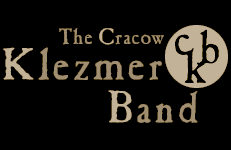
The Cracow Klezmer Band was a Polish jazz quartet formed by accordionist and composer Jarosław Bester in 1997 in the city of Kraków, and recorded for Tzadik Records. The group performed at Jewish Culture festivals in Hungary, Finland, Poland, Prague, and the Czech Republic. Its sound was different from what most people would consider to be traditional klezmer music — instead of danceable versions of traditional Yiddish songs, and free-form fantasies, and laments, The Cracow Klezmer Band played often dark and brooding but soulful and dynamic original virtuoso compositions instead in the klezmer form. Some songs could be considered dance pieces, but there were none of the traditional Bulgars, Freylekhs or Horas.
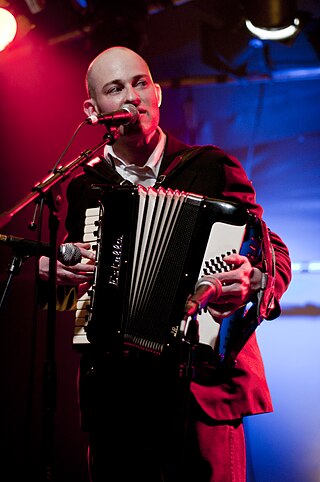
Geoff Berner is a Canadian singer, songwriter, and musician from Vancouver.

Maria Tănase was a Romanian singer and actress. Her music ranged from traditional Romanian music to romance, tango, chanson, and operetta.

Kroke is a Polish instrumental ensemble of world music. The band's name refers to the Yiddish language name for Kraków.

Jeremy "Jaz" Coleman is an English singer and musician. He came to prominence in the early 1980s as the lead vocalist and keyboardist of post-punk group Killing Joke.
Jovano, Jovanke is a traditional folk song originating from the region of Macedonia. It is popular in and frequently performed in North Macedonia, Bulgaria, and the Macedonia region of Greece. The song has also been adapted and performed in neighboring Balkan states such as Bosnia and Herzegovina, Serbia and Croatia. It is about two young lovers separated by their disapproving parents. The song mentions the Vardar river which runs through present-day North Macedonia and present-day Greece.

David Krakauer is an American clarinetist who performs klezmer, jazz, classical music, and avant-garde improvisation.

Banana Boat is a Polish a cappella sextet, authoring and performing original songs representing the genre of neo-shanties. Being one of the pioneers of the new genre, the group retains its simultaneous focus on contemporary interpretations of traditional sea shanties and maritime music. Owing to its characteristic six-part, jazzy harmony, departing from the traditional sound of the music of the sea, the group has become one of the emblems of what the international artists of the maritime stage have informally come to dub as the Polish style maritime song. With maritime music constantly in the focus of its activity, since 2004, Banana Boat has also been experimenting with other musical genres, including popular and jazz compositions, inviting other artists to participate in individual projects. The group is a Member of International Seasong and Shanty Association (ISSA).
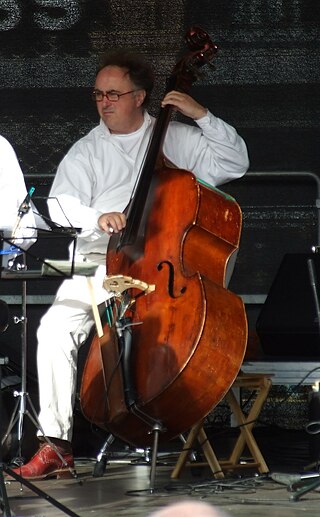
Vitold Rek is a double bassist, composer and music educator. He studied classical double bass at the Academy of Music in Kraków when Krzysztof Penderecki was rector there. His playing "unites jazz influences with classical and East European folk elements", with a focus on live performance and composition.
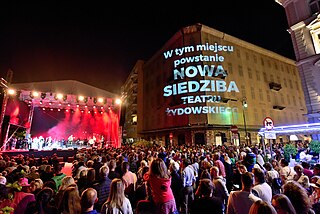
Festival of Jewish Culture in Warsaw – "Singer's Warsaw" is an annual celebration of Jewish culture that has been held in Warsaw since 2004.
Mayfair Recording Studios was a recording studio in London, England, which was in operation from the 1960s until 2008.
"'Ajde Jano" is a traditional Serbian wedding Folk song from Kosovska Mitrovica and Kosovska Kamenica.

Shake Away is the sixth studio album by Mexican singer-songwriter Lila Downs. It was released on 2 September 2008 on Manhattan Records. After attaining international success in 2001 with her first English record, Border, Downs wanted to release a fifth Spanish-English language project as its followup. In the vein of her earlier work, the album is heavily influenced by world music, flamenco and rock. Downs enlisted Paul Cohen as executive producer, also working with Celso Duarte, Brian Lynch and Aneiro Taño.
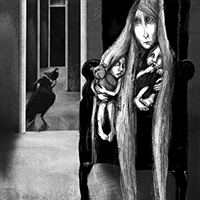
Kołysanki is the fifth studio album by Polish band Lux Occulta. The album was released on March 13, 2014. It is the first album released by the band in 13 years, as well as the first since the ending of the band's hiatus, making it the longest gap between the band's albums.

Janusz Józef Muniak was a Polish jazz musician, saxophonist, flutist, arranger, and composer. He was one of the pioneers of free jazz in Europe, although later in life tended towards the mainstream.















